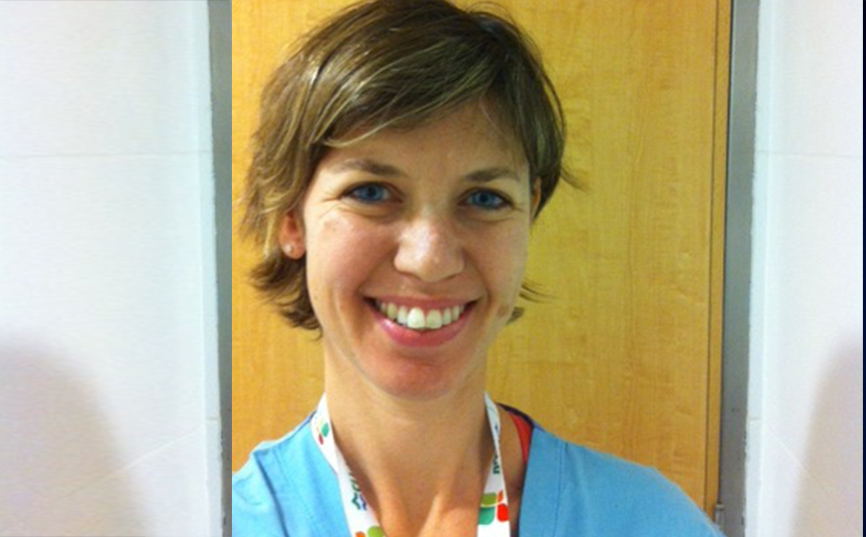An Unforgettable Learning Experience: Dr. Ifat Snir

1. Please provide an overview of your fellowship at your hospital and the role you played during your stay.
- I spent four weeks at the gastroenterology division of Mount Sinai hospital in NYC, and specifically at the IBD center (inflammatory bowel diseases). This center includes the outpatient clinics, and an inpatient service. During that time I joined the doctors at their daily work, and specifically to Dr. Steven Itzkowitz, one of the senior doctors at the department.
2. Describe how your fellowship opportunity has expanded your knowledge in your specific field.
- During my fellowship I encountered mostly IBD patients, both as an inpatients, during an acute event that needed hospitalization, and in some cases- surgical treatment, and as an outpatients. Mount Sinai hospital is a referral center for IBD, and as such, it deals with large volume of patients, many are complex cases. Seeing so many interesting cases in such a short period of time was a compelling experience.
3. What did you enjoy most about your fellowship opportunity?
- The educating discussion about complex cases in the IBD meetings and on the daily work. joining the academic meetings of the department, and meeting doctors like Dr. Jean-frederic Colombel and Dr. Bruce Sands worldwide leaders in the field of IBD was very excited.
4. Do you feel international medical relationships and fellowship programs are vital to the future of medicine and research?
- Definitely yes. In order to promote global good medicine, medical centers must share their knowledge to train and educate doctors from around the world. When we are talking about research, collaboration is essential since one can bring innovation and out of the box thinking, and the other would bring wide perspective and strategic and long term thinking.
5. Explain the major differences between the Israeli health care system and the United States private healthcare systems in terms of your specific field.
-
The advantage of the Israeli healthcare system is that every citizen is insured, and that the basic insurance gives a fair coverage to everyone.
The American healthcare system has the ability to give the most updated Treatments to her insured people, but the ability of the patients to receive those treatments depends on his/her coverage/ability. The most relevant example in my field is the biologic drugs used to treat IBD patients, and the new novel treatments for HCV infection. In Israel less drugs are available to use, but they are available to all the patients who need them.
6. What do you feel are the key issues and challenges in your field – not only in the Unites States and Israel, but worldwide?
- To improve our cancer prevention strategies for gastric and esophageal cancers, that are usually diagnosed at late stages and carry worse prognosis.
And to improve our understanding and management of patients with IBD in order to prevent the long term complications of the disease.
7. What are your future plans at Rabin Medical Center when you return to Israel?
- I intend to finish my fellowship in gastroenterology at the end of this year. Afterwards I am considering continuing to post-doc fellowship in the field of IBD.
8. Would you recommend this fellowship to your peers? Why or why not?
- Absolutely! This is an incredible opportunity to learn from well known experts in the field one is interested in, and may help those who are interested in formal fellowship programs in the United States.
Meeting fellows from around the world makes connections and gives an opportunity for future collaborations.
Related Articles
Rabin Medical Exchange Fellowship Follow Up Interview Questions: Marc Lubin
Dr. Marc Lubin, from Rabin Medical Center’s Urology Department, came to New York for a one month observership in uro-oncology at Weill Cornell Medical Center.
First Israeli-Arab Rabin Medical Exchange Fellow Speaks at Afrmc Global Connections
Dr. Mohamed Kittani is the first Israeli-Arab doctor to join the prestigious Rabin Medical Exchange fellowship program.
Study at Rabin Medical Center On Induced Labor Shows No Harm to Mothers & Babies
Tel Aviv University study has determined that natural, spontaneous deliveries and induced deliveries following the rupture of the amniotic sac in the mother share similar neonatal outcomes, contradicting common wisdom.